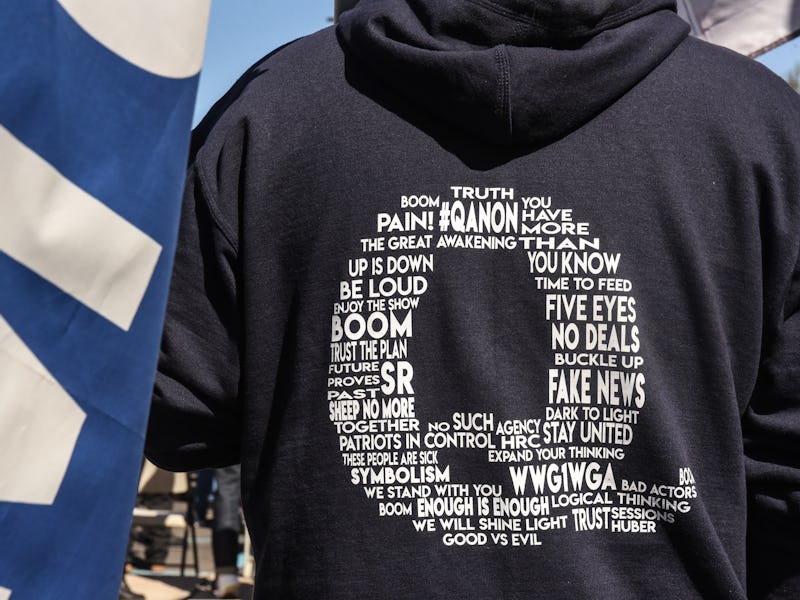Culture
Etsy will remove any QAnon merch it finds on its platform
The e-commerce company is tackling the conspiracy theory with a zero-tolerance policy.

Etsy is the latest tech company to take on QAnon. On Wednesday, the e-commerce company told Insider that it would pull any and all QAnon merchandise on its platform. The conspiracy theory gained significant traction this year, prompting a host of tech companies to try to halt its spread.
Etsy’s not messing around — Etsy is already enforcing its longstanding ban against Proud Boy merchandise with vigor following Donald Trump’s dog whistle to the white supremacist group during last week’s presidential debate, according to The Verge. The company joined other retailers like Amazon, Fred Perry, and eBay in scrubbing the group from their platforms. Now, its sights are set on QAnon as we lumber towards the election.
“Etsy is firmly committed to the safety of our marketplace and fostering an inclusive environment,” an Etsy spokesperson told Insider. “Our seller policies prohibit items that promote hate, incite violence, or promote or endorse harmful misinformation. In accordance with these policies, we are removing items related to 'QAnon' from our marketplace.”
While some sellers still have QAnon references in descriptions for pro-Trump products, searches for QAnon return no results. Related terms like #WWG1WGA and #RedPilled, with or without the hashtag, still return some results.
It’s not easy being Q — QAnon followers, which the FBI has flagged for their potential to engage in domestic terrorism since last year, are being wiped off the internet. Even Facebook, which allowed QAnon groups to prosper, drew an unusually hard line in the sand yesterday by banning them from all its platforms.
LinkedIn has been much faster to react to these conspiracy theorists and many related terms return little to no results. Even so, Q followers would need to post misinformation in order to receive any punitive action on the individual level.
Misinformation has bled over to commerce from social media several times this year, most heavily in relation to snake oil coronavirus cures. As more companies take stock of how intentionally false information and genuinely believed conspiracy theories are proliferating on their platforms, it’s a rare reassuring moment to see them actually doing something about it.